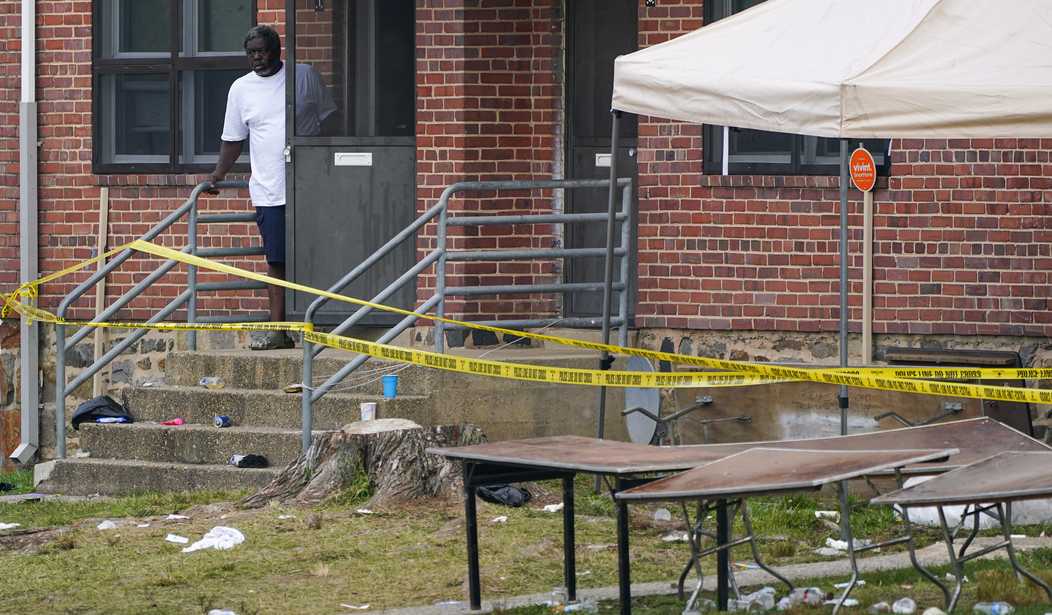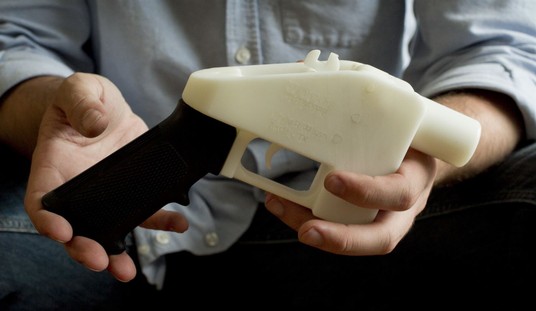Baltimore Mayor Brandon Scott is teaming up with Everytown Law to challenge the ATF’s policy on firearm trace data; specifically, the agency’s determination that the particulars of firearm traces can be shared only with law enforcement and not, say, gun control groups or their anti-2A allies.
In a series of posts on X, the Bloomberg-funded gun control outfit claimed that mayors like Scott cannot keep their communities safe “without access to critical data that shows where crime guns are coming from,” but the real impetus for the lawsuit is about fueling even more litigation, not public safety.
According to Scott, city officials requested “the identity of the top ten sources of crime guns in Baltimore from 2018 to 2022 as part of the City’s effort to fight gun violence.” What they’re really looking for, however, are the names of high-volume FFLs; gun stores that they can blame for the city’s woeful rate of violent crime, suing them under the theory that they should be held responsible for the actions of criminals, even if there’s no evidence of wrongdoing on the part of the retailer or its employees.
The ATF makes clear that the data isn’t supposed to be used in this fashion. Not every firearm that’s traced has been used in a crime, and not every gun used in a crime will be traced by the ATF, but that hasn’t stopped the gun control lobby from wanting to get its hands on the granular data collected by the agency; data that is, by the way, already available to the Baltimore Police Department, Maryland State Police, and other law enforcement entities across the state.
While the ATF is prohibited from making this trace data available to general public, the agency does release aggregate data each and every year, and in 2020 it even released a pretty detailed analysis of 2019 Baltimore-specific traces. The vast majority of traced firearms were originally sold at retail in Maryland, with neighboring Virginia the second-most common source state. Georgia, North Carolina, West Virginia, and Pennsylvania were each the point of origin for roughly 90 firearms recovered in the city, but those figures pale in comparison to the 583 firearms recovered with a Maryland point of origin.
The vast majority of recovered firearms were sold years earlier, which further undercuts the gun control lobby’s argument that illicitly-acquired firearms are quickly passing across the state line. Just 44 guns were recovered that had been sold at retail within three months, while there were 1,074 guns traced that had been sold more than three years prior. In fact, the national time-to-trace average in 2019 was 8.29 years, but in Baltimore it was 11.60 years. Baltimore has more than its share of homicides and violent crime, but there’s little evidence that bad apple dealers and sketchy sales are fueling the violence.
It’s also worth noting that the number one reason for tracing a gun in Baltimore four years ago was simply carrying a concealed firearm without a license, which accounted for 966 of the 2,490 guns that were traced in 2019. The second most common reason? Found firearms, which accounted for another 310 traces. Fully half of the traces conducted in Baltimore were for non-violent, possessory offenses. The most common violent crime-related trace was for “simple assault”, and those only accounted for fewer than 10 percent of the total number of traces in the city.
The trace data that Scott and Everytown are seeking are worthless in terms of setting public policy, which is the ostensible reason for the lawsuit. What, specifically, is Scott hoping to do that requires learning who the top ten sources of traced firearms happened to be? What public safety measures need to be tailored to having access to that particular piece of information, other than suing those gun stores that happen to be at the top of the list?
The saddest part of this entire exercise (well, besides blaming the firearms industry for the actions of violent criminals) is that, despite the anti-gunners claims that giving mayors and gun control groups unfettered access to ATF trace data is absolutely necessary in order to bring down violent crime, Baltimore appears to be doing a pretty good job in that respect already. For the first time since 2015, the city is on pace to end the year with fewer than 300 homicides. Murders have declined by nearly 25 percent this year compared to 2022, so something is working, even if the city has a long way to go when it comes to non-fatal shootings, carjackings, and juvenile crime.
Brandon Scott and Everytown Law should be talking to rank-and-file police officers, homicide investigators, and gang task force members along with other stakeholders from prosecutors to community activists to find out what’s behind the steep drop in homicides. Instead, they’re going on a fishing expedition hoping to turn up any information they can use to convince a jury that the city’s violent crime is being driven by the lawful commerce in arms. This lawsuit isn’t about public safety… or at least not in the way they suggest. It’s about making it harder for the public to protect themselves by suing the firearms industry into oblivion, and honestly, I doubt that the DOJ will provide a vigorous defense to the demands from the anti-gunners going forward.









